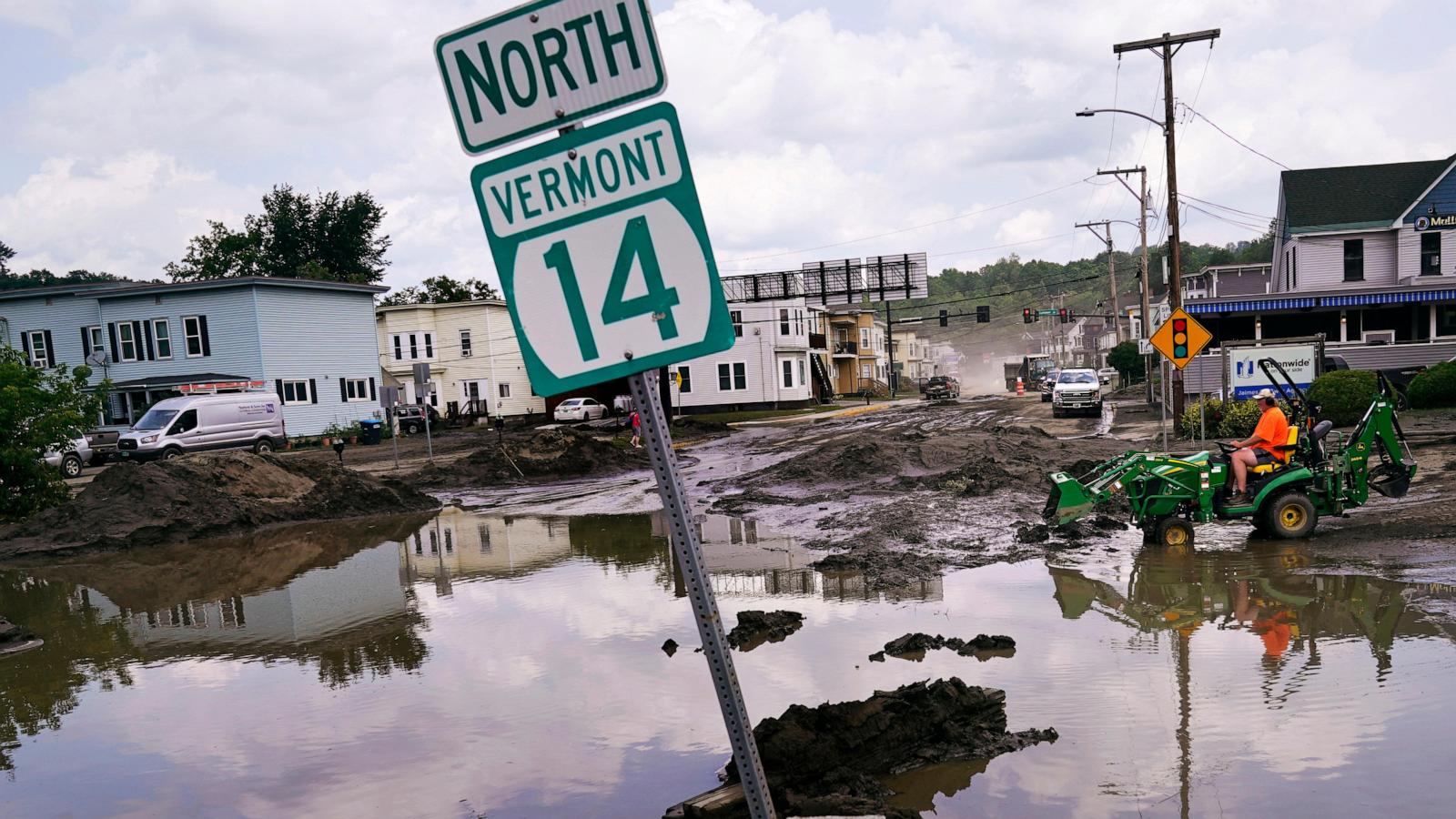Is Big Oil Facing its Day of Reckoning? Vermont's Bold Lawsuit and the Looming Climate Change Crisis
The climate crisis is no longer a distant threat; it's a present reality. From devastating floods to scorching heatwaves, its impacts are undeniable. And now, Vermont, a small state with a big heart, is taking on the titans of the fossil fuel industry, daring to hold them accountable for the climate damage they've wrought. Get ready to uncover the shocking details of this landmark legal battle, its implications for the nation, and the exciting potential for other states to follow suit. Buckle up, because this is a fight that could redefine climate responsibility.
Vermont's Groundbreaking Climate Change Lawsuit
Vermont, a state known for its breathtaking landscapes and progressive values, recently made headlines by enacting a groundbreaking law requiring fossil fuel companies to pay for the climate damage they've inflicted on the state. This bold move is being hailed as a landmark victory for environmental justice and holds far-reaching implications for future climate-related litigation.
A Precedent-Setting Lawsuit
This innovative law targets large energy companies responsible for substantial greenhouse gas emissions and requires them to contribute to a fund for climate change adaptation and mitigation projects in the state. Such projects range from enhancing stormwater drainage systems to upgrading roads and railroads, to even weatherization improvements for buildings. This marks a decisive step in holding these major players accountable for the consequences of their decades-long emission activities.
A Reaction from the Fossil Fuel Industry
The reaction from the fossil fuel industry wasn’t surprising. The U.S. Chamber of Commerce and the American Petroleum Institute promptly launched a lawsuit challenging the constitutionality of the law. They argue the law interferes with federal environmental regulations and violates interstate commerce. Moreover, they contest the practical difficulty of accurately attributing specific climate change damage to particular entities over an extended timeframe. The outcome of the lawsuit will affect not just Vermont but set a powerful example influencing future policies on climate accountability.
Holding Big Oil Accountable: A National Movement?
Vermont's initiative isn't just about protecting its own environment; it's a spark that's igniting a larger movement across the nation. The implications reach far beyond Vermont's borders. Several other states are actively exploring similar strategies to hold fossil fuel companies accountable for the financial burden of climate change mitigation and adaptation projects.
The ripple effect of Vermont's action
This brave stand is not just unique; it's contagious. New York already signed a bill to make polluters pay. And other states have shown substantial interest in establishing their own polluter-pays regulations to ensure fairer financing of essential climate change responses. This wave of progressive change is directly attributable to Vermont's groundbreaking leadership.
Climate change costs – not just environmental, but financial
Climate change costs are significant, resulting in billions of dollars in economic losses and posing a dire threat to the global economy. While most climate change impact discussion tends to revolve around environmental factors, we are finally beginning to consider that the damage to human infrastructure—buildings, bridges, power grids, and essential services—costs a staggering amount of money. The financial argument may prove to be pivotal in holding the fossil fuel industry accountable and advancing climate justice efforts on a broader scale.
The Future of Climate Justice: Beyond Vermont
Vermont's bold approach and lawsuit offer crucial insight into what legal pathways might exist for governments to challenge fossil fuel companies on financial grounds for damage caused. These steps to hold polluters accountable for damage caused are essential not just in the U.S., but worldwide.
Legal battles ahead
Several states are likely to experience legal opposition in their attempt to levy similar taxes, facing arguments similar to those the fossil fuel industry launched against Vermont. Future legal challenges may influence other states' plans to emulate Vermont's strategy. The legal battles are inevitable as fossil fuel companies are anticipated to mount legal challenges in jurisdictions where this approach gains popularity.
Implications for Climate Change Policy
Regardless of the outcome of Vermont's legal challenge, its groundbreaking effort signals a shift in the way society approaches climate change. It signals an increased understanding that climate damage is not an abstract problem, but a very real issue with real-world costs – costs that those most responsible should bear. The implications will shape climate change policy at national and potentially international levels.
Take Away Points
- Vermont's lawsuit against fossil fuel companies is a landmark legal challenge, setting a precedent for other states to follow.
- This case highlights the increasing urgency of holding polluters accountable for their financial contribution to climate change damage.
- The legal battles surrounding this precedent-setting law may drastically influence national climate change policies.
- States' innovative efforts to secure funding for crucial climate change responses and damage restoration via these charges against large fossil fuel companies present a crucial step toward climate justice and highlight the global implications of such actions.




